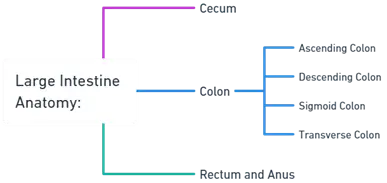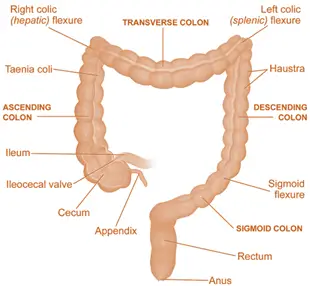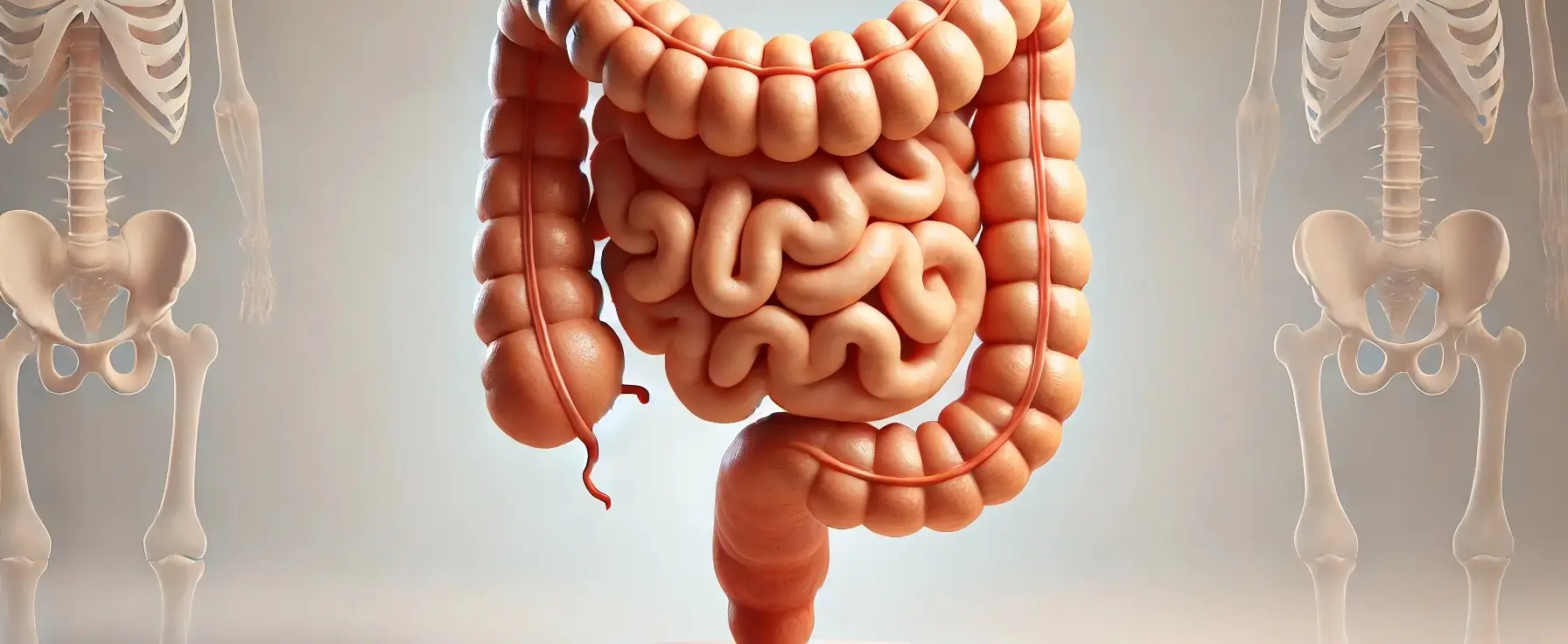- The large intestine absorbs water and electrolytes from food, forming solid waste (feces) which is then excreted from the body.
Anatomy
- The large intestine, or colon, is about 5 feet in length and is divided into several parts: the cecum, ascending colon, transverse colon, descending colon, sigmoid colon, rectum, and anus.

1. Cecum:
- A pouch-like structure that marks the beginning of the large intestine, connected to the ileum of the small intestine via the ileocecal valve.
- The appendix, a narrow, finger-like projection, is attached to the cecum and plays a role in immunity.
2. Colon:
- This part of the large intestine is subdivided into four segments:
- Ascending Colon: Travels upward from the cecum on the right side of the abdomen.
- Transverse Colon: Passes across the abdomen from right to left.
- Descending Colon: Travels downward on the left side.
- Sigmoid Colon: S-shaped segment that connects to the rectum.
3. Rectum and Anus:
- The rectum stores feces until defecation, and the anus is the final segment through which feces are expelled from the body.

Functions
- Water and Electrolyte Absorption: The large intestine absorbs water and salts from the material that has not been digested as food, converting it into a firmer stool.
- Fermentation: Bacteria in the colon ferment undigested carbohydrates into gases and short-chain fatty acids, which can be absorbed and provide a source of energy.
- Vitamin Synthesis and Absorption: Some vitamins, especially vitamin K and some B vitamins produced by colonic bacteria, are absorbed here.
- Fecal Storage and Elimination: The rectum stores feces until they are expelled through the anus during defecation.
Click Here to Watch the Best Pharma Videos

